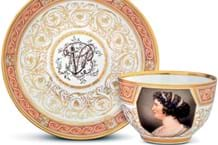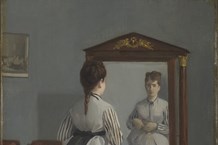The Bill now passes to the House of Commons, where the Trade’s ability to fight it will be considerably strengthened by the backing of DMG Antiques Fairs, organisers of Kent’s largest fair at Detling.
Stopping a Bill once it has reached the Commons is a costly procedure, but DMG have pledged to invest time and money to support traders and their associations in beating legislation which they say “could signal the end of the antiques trade in Kent”.
The attempt to stop the Bill in the Lords failed when an amendment moved by Viscount Astor, which would have quashed it, was defeated by 47 votes to 33 after a lively dinner-hour debate.
Several speakers lamented the fact that some of the shortcomings of the Bill had not been recognised earlier so that it could have been examined by a Select Committee while still in the House of Lords. As it was a majority concluded that it should not be thrown out after only a short debate but pass to the Commons where its implications can be more thoroughly examined.
The Bill, which is sponsored by the Kent County Constabulary, is aimed at reducing the traffic in stolen goods by regulating deals in secondhand goods, but draws much of the art and antiques trade into its net.
The trade fear that a huge burden of extra red tape, involving buyers and sellers having to register their names and addresses with dealers, and fair organisers recording car numbers, could kill off transactions in Kent and have ramifications for registered Kent dealers trading outside the county.
Lord Thomson of Monifieth, who urged the Lords to pass the Third Reading of the Bill, told his peers that the Bill had the support of all the political parties and that the views of members of the trade who were against it had been taken into consideration.
He told the Lords that following discussions with LAPADA, a whole series of exemptions had been negotiated: occasional sales by auctioneers, regular private markets of traders, and dealers outside Kent who came into the county either to sell or buy. There was a total exemption for books and an amendment to protect antiques collectors who had to disclose the location of their collections.
Lord Thomson dismissed one of the trade’s biggest concerns – that of having one law for Kent and another for the surrounding region – as “a typical example of the ideal being the enemy of the good. That is no more than to argue that if you cannot do something worthwhile everywhere, you should not be allowed to do it anywhere.”
However, there was sufficient feeling in the Upper House that the Kent Bill remained “bad law” to force a vote and mount a serious challenge to its passage.
Though the piecemeal amendments to the Bill which had been negotiated between readings during the summer were sufficient to satisfy book dealers’ and auctioneers’ associations that they were not threatened, the appearance of the finally amended draft still alarmed general dealers in Kent and LAPADA decided that they had no option but to oppose it.
Peers had been alerted to the possible consequences of the Bill for the Trade the week before the third reading, when Georgina McKinnon of Newington Antiques and fellow Kent dealer David Jackson-Grant, had joined LAPADA chief executive Malcolm Hord in a presentation in the House of Lords.
They were heartened to see a good turnout for the third reading and a close vote. “It was encouraging that perhaps every speaker in the debate on the Bill, including the Government, acknowledged the argument for national legislation rather than local criminal law,” Mr Hord told the Antiques Trade Gazette, “and that most agreed that the Bill needed more serious scrutiny than it had yet received.”
Mark Carr, managing director of DMG Antiques Fairs, explained that the company had now launched a wide-ranging lobbying campaign aimed at getting MPs to reconsider the Bill in the light of comment and petitions from the trade and other organisations.
“Whilst we applaud any legislation aimed at strengthening consumer protection and reducing the traffic in stolen goods, the proposals in this Bill will do neither,” he said.
“We are mobilising more than 400 of our customers, i.e. trade exhibitors, who are based in Kent and are encouraging them to lobby their MPs and the press. At a national level we will also be making representations to Parliament through a petition and are seeking support for this from across the antiques trade.”
Mr Carr said that while the Bill aimed to help police beat crime, it failed three main tests of principle:
• National consistency in the criminal law – “legislation that creates criminal offences arising out of everyday commercial transactions should apply nationally throughout the country and not, as is proposed here, to transactions that happen to take place in Kent or be transacted by dealers whose place of business happens to be there.”
• Regulation and burdens on small businesses – no assessment had been made by the Government of the damaging impact and cost of the extra red tape involved, he argued.
• Enforceability – “it is almost impossible to see how the provisions of the Bill, particularly as they affect commercial transactions taking place outside Kent or between a non-Kent dealer and a Kent resident, can be policed. There are in addition clear civil liberties issues arising, not least with regard to the unfettered powers of entry into domestic and business premises.”
Discussions on how the campaign will proceed are underway.
DMG joins trade against Kent Bill
UK: THE KENT County Council Bill, which seeks to impose rigorous controls on all trade in secondhand goods in the county, passed its third reading in the House of Lords on January 18, despite substantial opposition, both inside and outside the House.




